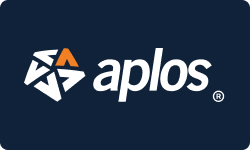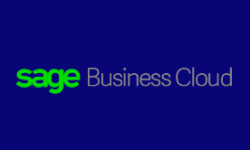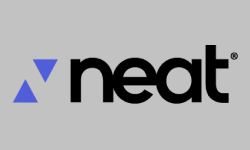Performance at Glance
| NetSuite Rating at Glance | |
| | Intuitive interface with customizable dashboards, but initial setup can be complex for some users. |
| | Knowledgeable support team with 24/7 availability, but response times can vary. |
| | Comprehensive suite with robust features for financials, CRM, ERP, and more. |
| | High initial and ongoing costs, but can provide long-term value for growing businesses. |
| | Highly rated with positive reviews for features, ease of use, and customer support. |
Features Of NetSuite Accounting Software
NetSuite is an enterprise resource planning (ERP) software that provides businesses with a comprehensive suite of cloud-based tools to manage their financials, operations, customer relations, and more. As a fully integrated system, NetSuite offers a wide range of features designed to streamline processes, improve productivity, and enhance decision-making capabilities. In this segment of the blog post, we will discuss some of the key features of NetSuite and how they can benefit businesses of all sizes and industries.
| |
| |
Enterprise Resource Planning | |
Customer Relationship Management | |
| |
Professional Services Automation | |
Human Resources Management | |
| |
| |
Global Business Management | |
| |
NetSuite’s financial management capabilities allow organizations to automate and streamline financial processes, including accounting, billing, revenue recognition, financial reporting, and budgeting. The system provides real-time visibility into financial performance and offers a centralized platform for managing financial operations across multiple entities, currencies, and subsidiaries.
-
Enterprise Resource Planning:
NetSuite’s ERP functionality allows organizations to manage key business processes such as inventory and order management, production management, procurement, and supply chain management. The system provides real-time visibility into operations, inventory levels, and demand forecasting, enabling organizations to make informed decisions and respond quickly to changing business conditions.
-
Customer Relationship Management:
NetSuite’s CRM module helps organizations manage customer relationships and interactions, from lead generation and opportunity tracking to customer support and service management. The system provides a unified view of customer data, enabling organizations to personalize customer interactions and deliver exceptional customer experiences.
NetSuite’s e-commerce management capabilities enable organizations to create and manage online stores and marketplaces, as well as integrate e-commerce operations with other business processes such as order management, inventory management, and fulfillment. The system provides a flexible and customizable platform for online sales, enabling organizations to optimize the customer experience and drive revenue growth.
-
Professional Services Automation:
NetSuite’s PSA module provides organizations with tools for managing and optimizing professional services operations, including project management, time and expense tracking, resource management, and billing. The system provides real-time visibility into project performance and profitability, enabling organizations to make data-driven decisions and optimize project outcomes.
-
Human Resources Management:
NetSuite’s HRM functionality helps organizations manage human resources operations, including employee data management, payroll, benefits administration, and compliance management. The system provides a centralized platform for managing HR operations, enabling organizations to improve efficiency, accuracy, and compliance.
NetSuite’s SCM capabilities enable organizations to manage and optimize supply chain operations, including inventory management, demand planning, procurement, and fulfillment. The system provides real-time visibility into supply chain operations, enabling organizations to optimize inventory levels, reduce costs, and improve customer satisfaction.
NetSuite’s BI functionality provides organizations with tools for analyzing and reporting on business data, including financial data, customer data, and operational data. The system provides customizable dashboards, reports, and analytics tools, enabling organizations to gain insights into business performance and make data-driven decisions.
-
Global Business Management:
NetSuite’s global business management capabilities enable organizations to manage operations across multiple geographies, currencies, and tax jurisdictions. The system provides a centralized platform for managing global operations, enabling organizations to streamline operations, reduce costs, and improve compliance.
NetSuite’s mobile access capabilities enable users to access the system from any device, including smartphones and tablets. The system provides a mobile app that allows users to access key business data and functionality on the go, enabling organizations to improve productivity and responsiveness.
NetSuite is a cloud-based platform that allows businesses to access the system from anywhere and at any time. The cloud-based platform also means that businesses do not need to worry about managing the infrastructure or servers required to run the system.
NetSuite is highly customizable, allowing businesses to tailor the system to their specific needs. This includes customizing dashboards, forms, and workflows to match their business processes and requirements.
NetSuite offers robust integration capabilities that allow businesses to connect the system with other applications and systems. This includes integration with popular CRM systems, eCommerce platforms, and other third-party applications.
NetSuite provides a range of business intelligence tools, including dashboards, reports, and analytics, to help businesses make data-driven decisions. The system also offers real-time analytics and reporting, enabling businesses to make informed decisions quickly.
NetSuite allows businesses to automate their workflows, reducing the time and effort required to complete routine tasks. This includes automating processes such as order management, invoicing, and inventory management.
NetSuite supports multiple currencies, allowing businesses to manage transactions in different currencies seamlessly. The system also offers built-in currency conversion capabilities, enabling businesses to calculate exchange rates automatically.
NetSuite is designed to be mobile-friendly, with a responsive design that allows users to access the system from any device. This includes smartphones, tablets, and other mobile devices, allowing users to access important data and functionality on the go.
NetSuite’s User Interface And User Experience:
NetSuite’s user interface and user experience are not only functional, but also visually appealing and easy to use. The system’s modern and sleek interface allows users to quickly and easily access the information they need.
One of the standout features of NetSuite’s UI is the level of customizability it offers. Users can customize their dashboards, reports, and forms to meet their specific needs and preferences. This ensures that users are able to easily access the information that is most important to them, without having to navigate through unnecessary screens or data.
NetSuite’s UI also includes a search bar that allows users to quickly search for specific data, such as a customer’s name or a specific invoice number. The system also includes a global search function that allows users to search across multiple modules for specific information, making it even easier to find what they’re looking for.
Furthermore, NetSuite’s UI is designed to be mobile-friendly and responsive, meaning that users can access the system from any device, including smartphones and tablets. This makes it easy for users to stay connected and access important data and functionality on the go, without having to be tied to a desktop computer.
The system also offers a range of features that enhance the user experience, such as tooltips that provide users with additional information and guidance, as well as inline editing that allows users to make changes to data directly from within the UI.
Overall, NetSuite’s UI and UX are carefully designed to provide users with a seamless and intuitive experience, with customizability and mobile-friendliness at the forefront of the design. These features make NetSuite a popular choice among businesses looking for an easy-to-use and efficient business management solution.
NetSuite Integration With Other Systems And Applications:
NetSuite is a cloud-based enterprise resource planning (ERP) software that provides businesses with a unified platform for managing various business processes, such as finance, inventory management, order management, and customer relationship management. To enhance its capabilities, NetSuite also allows for integration with other systems and applications, both within the NetSuite ecosystem and with third-party systems.
NetSuite offers several integration options, including:
This is a web services integration platform that allows developers to create integrations between NetSuite and other systems using SOAP or REST API calls. SuiteTalk can be used for a variety of purposes, such as importing and exporting data, automating business processes, and creating custom integrations.
It is a workflow automation tool that allows users to create custom workflows within NetSuite. It can be used to automate business processes, such as order processing, invoicing, and inventory management. SuiteFlow can also be integrated with other systems, such as email and customer relationship management (CRM) software.
The platform is for creating ecommerce websites and online stores that is fully integrated with NetSuite. It allows businesses to manage their online sales channels and customer interactions from within the NetSuite platform.
-
SuiteCloud Development Framework
This is a suite of tools and resources that allows developers to create customizations and extensions for NetSuite. It includes tools for building custom workflows, integrations, and user interfaces, as well as resources for testing and deploying customizations.
NetSuite also offers pre-built integrations with a range of third-party systems and applications, including Salesforce, Microsoft Office, Shopify, and Amazon Web Services. These integrations allow businesses to streamline their operations and improve their efficiency by automating processes and reducing manual data entry.
Top NetSuite Accounting Software Alternatives
Here, we will compare some of the top alternatives to NetSuite, a popular cloud-based ERP software solution for businesses. While NetSuite offers a wide range of features and capabilities, other software solutions like Salesforce, Microsoft Dynamics, Acumatica and SAP Business one may better suit the needs of certain businesses.
Let’s examine the key features and pricing of each alternative to help you make an informed decision about which solution is right for your business.
| | | |
| Business management software that includes ERP, CRM, e-commerce, and HR management capabilities. Designed for growing businesses. | | |
| Cloud-based CRM software that offers a range of sales, marketing, and customer service tools. Designed for businesses of all sizes. | | |
| ERP software that integrates financials, sales, inventory, and production management. Designed for small to mid-sized businesses. | | |
| Business management software that offers financials, supply chain management, and project management. | | |
| Cloud-based ERP software that offers financials, distribution, and project accounting. Designed for mid-sized businesses. | | |
Salesforce is a cloud-based customer relationship management (CRM) software solution that helps businesses manage their customer interactions, sales pipeline, and marketing efforts. It offers features such as lead and opportunity management, contact and account management, marketing automation, and analytics.
SAP Business One is an ERP software solution designed for small and midsize businesses. It offers features for managing financials, sales, purchasing, inventory, and production, as well as analytics and reporting capabilities.
It is an ERP and CRM software solution designed for businesses of all sizes. It offers features for financial management, supply chain management, project management, human resources, and customer relationship management, as well as analytics and reporting capabilities.
Acumatica is a cloud-based ERP software solution that offers features for financial management, distribution, manufacturing, project accounting, and customer management. It also offers customization options and integrates with other business applications, such as Salesforce and Microsoft Dynamics CRM.
Overall, each of these software solutions offers a range of features and capabilities for managing different aspects of a business, and the best option depends on the specific needs and requirements of each business.
Frequently Asked Questions
-
Is NetSuite Cloud-Based Or On-Premise?
NetSuite is a cloud-based software as a service (SaaS) solution. It is hosted on the cloud and accessed through a web browser, which means that users do not need to install any software or hardware on their own systems. This also means that NetSuite can be accessed from anywhere with an internet connection, making it a flexible and convenient option for businesses of all sizes.
-
What Is The Implementation Process For NetSuite?
The implementation process for NetSuite typically involves several steps, including project scoping, system design, data migration, configuration, testing, and training. The exact process may vary depending on the needs and requirements of the business, as well as the complexity of the implementation. NetSuite also provides implementation consultants and partners who can help guide businesses through the process and ensure a successful implementation.
-
What Kind Of Security Measures Does NeSuite Have In Place To Protect My Business Data?
NetSuite has several security measures in place to protect business data and ensure the privacy and security of customer information.
Firstly, NetSuite uses industry-standard encryption protocols to protect data in transit and at rest. This includes SSL/TLS encryption for data transmitted over the internet and AES-256 encryption for data stored in the NetSuite cloud.
NetSuite also uses role-based access controls to ensure that only authorized users have access to sensitive data. This means that users are granted access only to the specific areas and functions they need to perform their job duties.
In addition, NetSuite has a robust set of auditing and monitoring capabilities to detect and respond to any potential security incidents. This includes real-time monitoring of user activity, as well as alerts and reports for suspicious activity.
Finally, NetSuite undergoes regular third-party security audits and certifications, including SOC 1 and SOC 2, to ensure compliance with industry security standards.
-
What Types Of Businesses Is NetSuite Suitable For?
NetSuite is suitable for businesses of all sizes, from small and mid-sized businesses to large enterprises. It is particularly well-suited for businesses with complex financial and best accounting software for a small business needs, as well as those with multi-subsidiary and multi-currency operations. NetSuite also has industry-specific solutions for a range of industries, including manufacturing, wholesale distribution, retail, and professional services. Overall, NetSuite is a highly flexible and scalable solution that can be customized to meet the specific needs of a wide range of businesses.
-
What Type Of Reporting And Analytics Capabilities Does NetSuite Offer?
NetSuite offers a wide range of reporting and analytics capabilities to help businesses gain insights into their operations and make data-driven decisions. This includes customizable dashboards, real-time reporting, and ad-hoc analysis tools. NetSuite also has a powerful SuiteAnalytics module that provides advanced analytics and business intelligence capabilities, including predictive modeling and forecasting. NetSuite’s reporting and analytics capabilities can be used to track key performance indicators, identify trends and patterns, and monitor business metrics in real-time.
-
How Does NetSuite Handle Multi-Currency Transactions?
NetSuite has robust capabilities for handling multi-currency transactions, making it a suitable solution for businesses operating in multiple countries or with international customers.
NetSuite can handle transactions in over 190 currencies and automatically updates exchange rates daily, ensuring accurate and up-to-date currency conversion. Users can enter transactions in their local currency, and NetSuite will automatically convert the transaction to the appropriate currency using the current exchange rate.
In addition, NetSuite allows users to set up multiple currency bank accounts and credit card accounts, which can be used for receiving and making payments in different currencies. This makes it easy to manage cash flow in multiple currencies and reconcile accounts accurately.

![Unlocking Ahrefs Premium: Get Ahrefs Premium Accounts [100% Free]](https://s44815.pcdn.co/wp-content/uploads/2023/10/Ahrefs-Free-Premium-accounts-2023-330x250.webp)




















